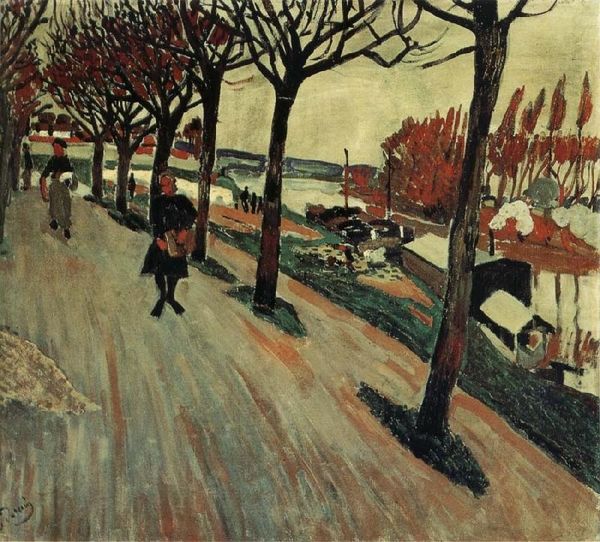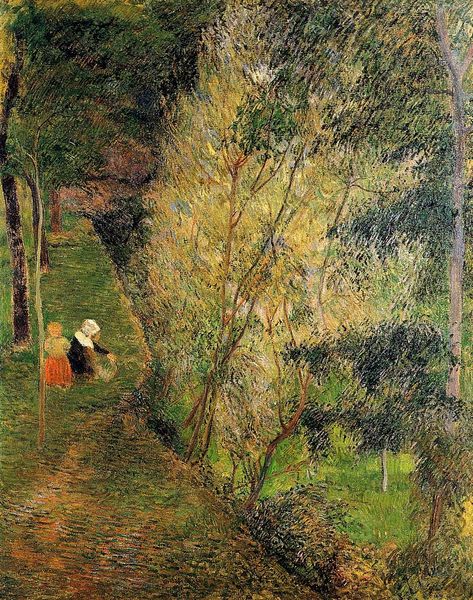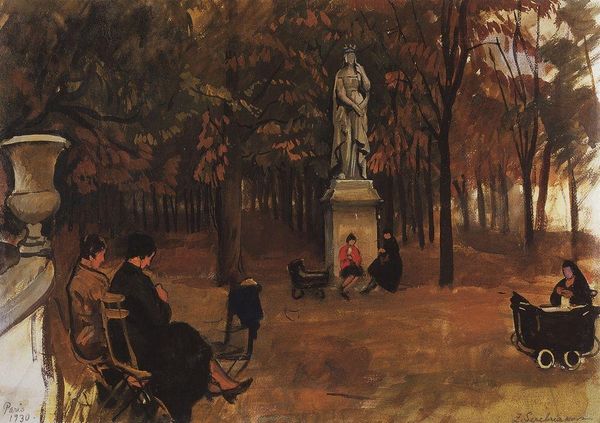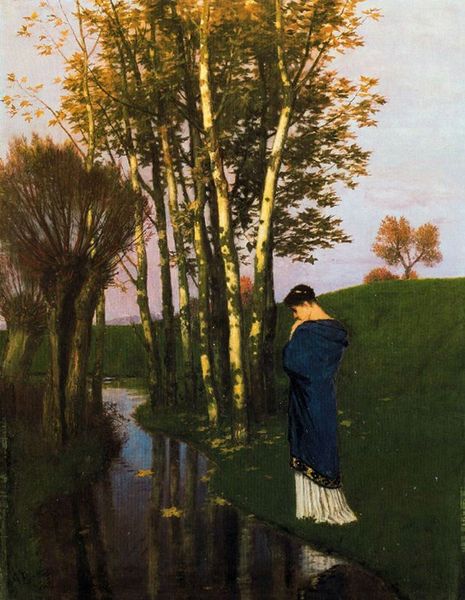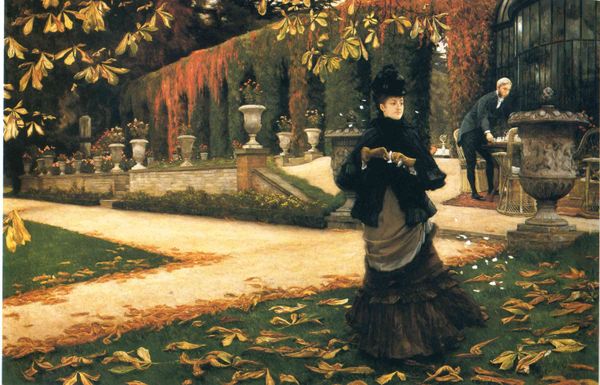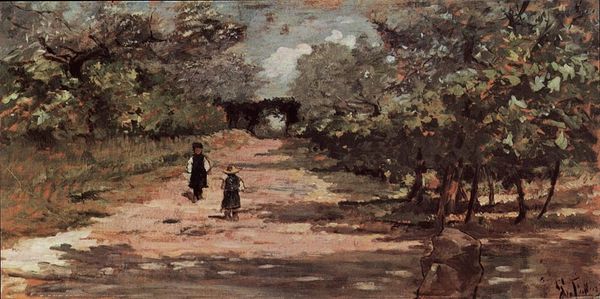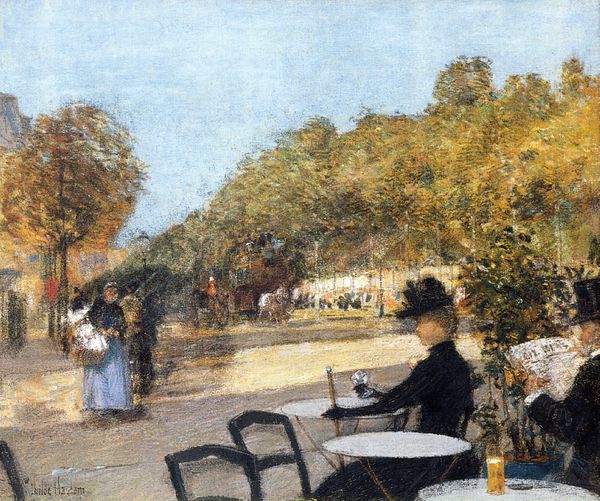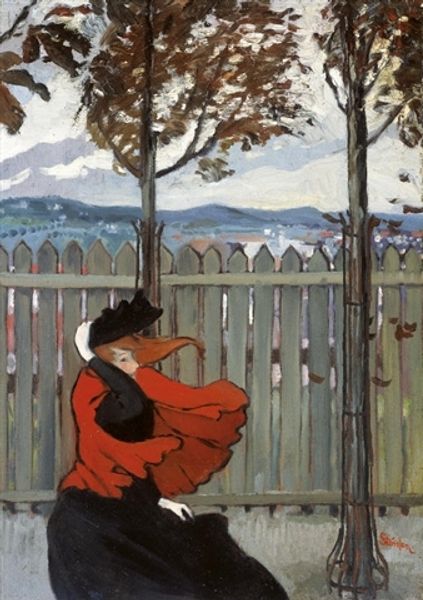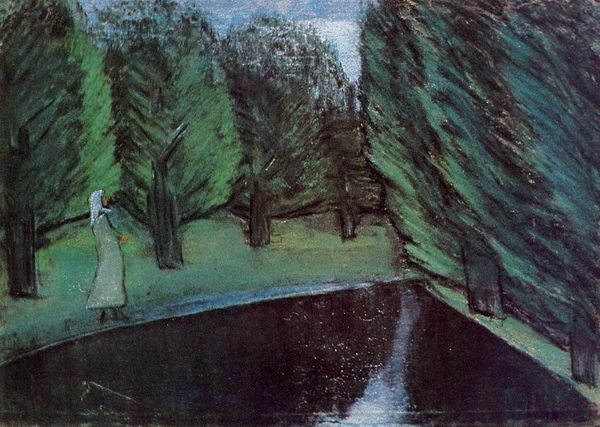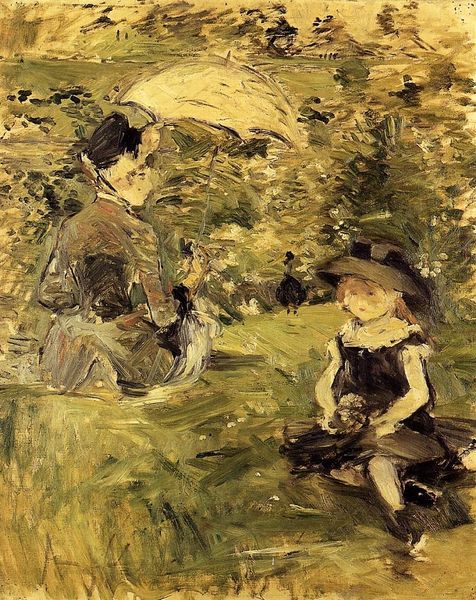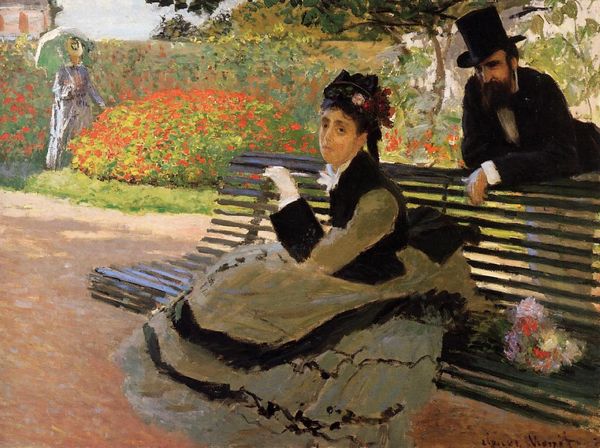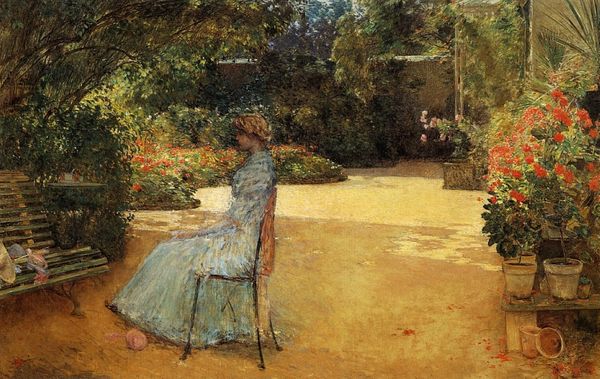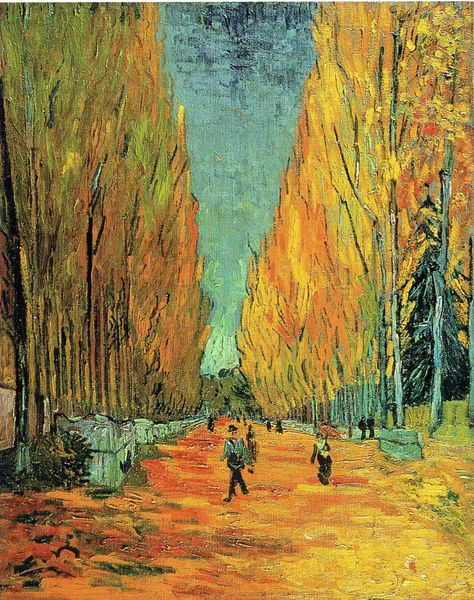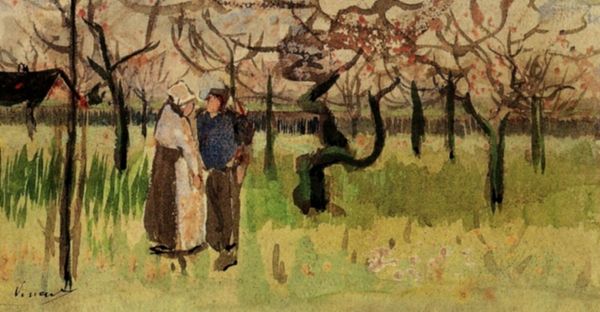
painting, oil-paint
#
portrait
#
self-portrait
#
painting
#
oil-paint
#
oil painting
#
naive art
#
genre-painting
#
post-impressionism
Dimensions: 65 x 56.5 cm
Copyright: Public domain
Curator: We're looking at Henri Rousseau's "The Artist Painting his Wife," an oil on canvas completed in 1905. It currently resides in a private collection. Editor: My first thought is, how serene! There's a lovely formality to the composition, a calmness in the symmetrical arrangement of trees. The execution looks decidedly...untrained. Curator: Precisely. The perspective is idiosyncratic; there's a flattening of space and an almost deliberate naivety in the rendering of form. The textures created with the oil paint are rather interesting considering Rousseau was mostly self taught. He often faced criticism for these stylistic choices. Editor: Yet the materiality is also intriguing. Observe the thick application of paint in areas, particularly in the foliage and the figures' clothing. I’m struck by how his labor is on display; we can almost trace his movements, the methodical building of texture layer upon layer. It really grounds it in a tactile reality, doesn't it? Curator: Absolutely. The controlled palette enhances that naive yet effective representation of space. Note how the darker shades are mostly constrained within the foreground, contrasted with the pastels toward the background, enhancing a three-dimensional effect. Editor: Thinking about Rousseau's production, one has to acknowledge he was essentially a self-supporting hobbyist. The act of painting would have been entwined with the rest of his existence, perhaps a welcome and regular change from more labor intensive or mundane jobs, and an affordable pursuit by that same token. He uses paint efficiently it feels! Curator: True. His artistic style might be considered somewhat anachronistic given the major movements that dominated the period, but that only adds to its allure. It provides us with a direct insight into the mindset of the creator. A sincere depiction from his own perspective. Editor: It invites us to reflect on art-making itself, doesn't it? About who gets to create, about skill, labour and access to materials. And beyond that, whether technical skill equals greater worth. It certainly complicates easy narratives of progress, doesn’t it? Curator: Indeed, it challenges any straightforward application of formalism. Thank you for these interesting insights! Editor: My pleasure, as always.
Comments
No comments
Be the first to comment and join the conversation on the ultimate creative platform.
